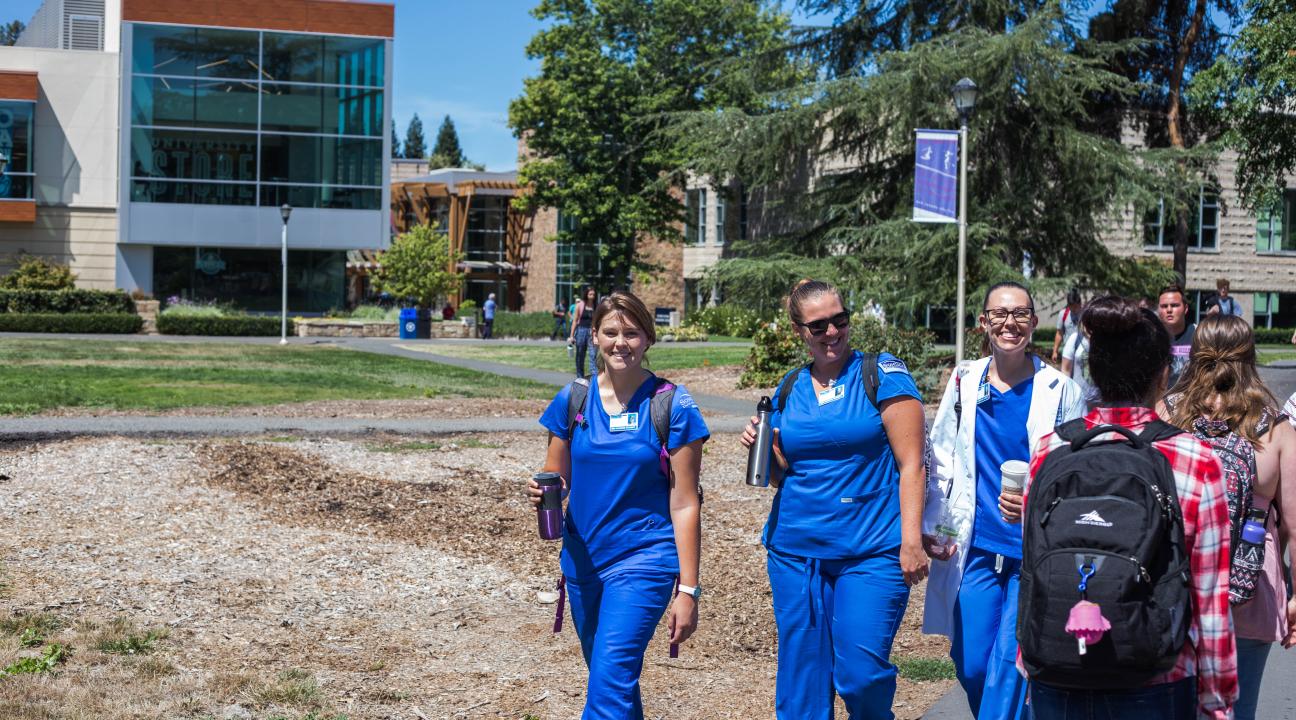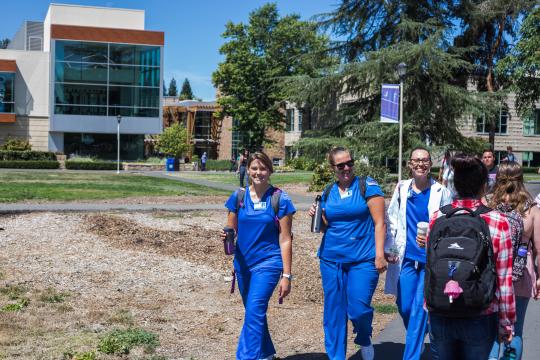Nursing Program at Sonoma State Growing and Inherently Equitable
Nursing is the nation’s largest healthcare profession, and Sonoma State University plays a big role in sustaining that workforce with the expertise needed to best serve patients and communities. SSU's Department of Nursing has been educating nurses for over 50 years, creating opportunities for more than 4,000 practitioners, educators, and leaders who serve the county, state, country, and world.
"Our program creates amazing, fantastic nurses who are educated to the highest level of excellence," said Dr. Krista Altaker, Chair of SSU's Department of Nursing.
Altaker said the program prides itself on transparent, high-quality standards, both in professional and soft skills, and that the equity rooted in its philosophy makes the department distinctive.
"Social justice awareness is a big emphasis for our programs and students. We're unique in how much we focus on social justice and health equity," she said.
The department chairs and professors are committed to helping student nurses fully develop the skills and expertise to do their jobs, meanwhile reminding them of their contribution to the community and the profession.
"We are here to help our students understand their role, what their options are, and how they can be engaged and involved in meaningful and impactful ways," Ataker said.
Grecia Lopez Perez, a student in the SSU Post-Licensure graduating class, emigrated from Mexico to the U.S. with her family when she was 12. She said facing numerous challenges, especially regarding access to healthcare as undocumented immigrants, was daunting.
"The experience ignited a strong desire to help others in similar situations and give back to the community I grew up in. It drove me to pursue a career where I can make a difference in the lives of others, especially those facing adversity," she said.
Lopez Perez said she felt an affinity with her cohort because of her professors' support and the program's commitment to racial and social justice.
"Thanks to my professors' encouragement and the program's diversity, I finally felt like I belonged in academia. The nursing program at SSU truly embraced me as a Latinx and former DACA recipient, providing a supportive learning environment," she said of her experience.
Making waves with positive change to the department is newly hired Family Nurse Practitioner (FNP) Director, Dr. Rich Fidler, on whose watch enrollment in the post-licensure Bachelor of Science in Nursing (BSN) program has increased by 25 percent, and by 40 percent in the Master of Science in Nursing (MFN), Family Nurse Practitioner (FNP) program.
With Fidler working on the growth of the FNP program, and Altaker focused on the Post-licensure BSN program, it is not surprising to see the department's heightened development.
Family nurse practitioners – and nurses in general – have become even more essential members of the healthcare workforce as regional and national shortages of primary care physicians become more acute. Fidler said most medical schools are not increasing enrollment because of a lack of access.
"I set out to meet students where they are and make attending the program an accessible option. When we talk about diversity, equity, and inclusion initiatives, I chose to focus on, 'How do I include you?'" he said.
The program's focus on underserved demographics makes it unique to Fidler. He is passionate about inclusion, but also in creating diversity from the top down.
"I just want the program to reflect the whole concept of, 'If you can see it, you can be it,'" he said regarding representation and success in the healthcare field.
As part of a curriculum revision to meet accreditation standards, the nursing department team chose to also embed equity content within their theoretical framework. Altaker said the teaching framework was revised to include this content, and changes were to internal policies to reflect the department’s core values.
"There is a clear intention of both doing the work ourselves to address bias, as well as modeling and advocating for our students to do that work for themselves, and then bringing that into the practice," she said.
—Krista Sherer, Strategic Communications Writer



